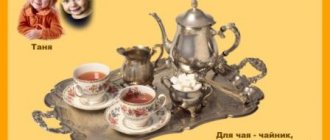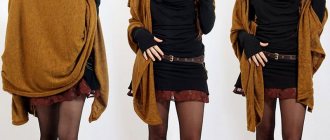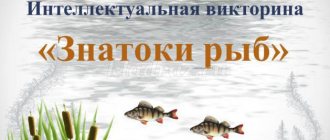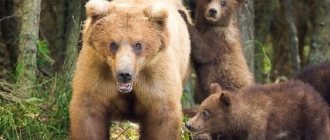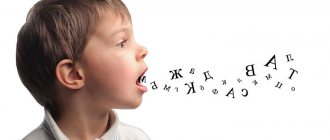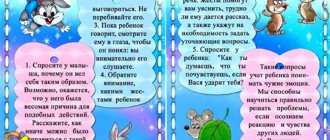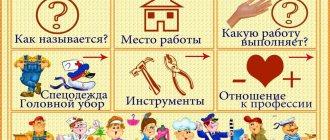Quiz for children of the preparatory group “My country. My land. My city. My street"
Quiz for children of the preparatory group
"My country. My land. My city. My street"
Target:
Testing and activating children’s existing knowledge and independent judgments about the country, native land and city.
Objectives:
• consolidate children's knowledge about our country, native land and city; • systematize children's knowledge about the symbols of the state: flag, coat of arms, anthem. • expand children's horizons; learn to answer questions depending on the content, using an accurate, expressive vocabulary; • to cultivate in children patriotic feelings, respect for all nationalities, love and respect for Russia.
Leading:
Of course you all want it.
Then let's get to work! Attention, this is the first question of our quiz. 1. What is the name of the country in which we live? (Russia) Assignment to teams: Make up sayings and proverbs about our Motherland from parts (adults work in teams and read parts of proverbs to children). Team 1 - Beloved homeland, like a dear mother. Take care of your native land like your beloved mother. Team 2 – On someone else’s side, even spring is not beautiful. If friendship is great, the Motherland will be strong. Team 3 – A man without a homeland is like a nightingale without a song. The Motherland is your mother, know how to stand up for her. Leader Teams that correctly complete the task receive the first floor of the house. Host:
Attention, this is the second question of our quiz.
2. Name the state symbols of Russia (Coat of Arms, flag, anthem) Practical task:
1 team - find the flag of Russia from the many flags of different countries.
Team 2 – find Russian money Team 3 – Game “Find the Differences” (different images of the Russian coat of arms).
Russia has a majestic double-headed eagle on its coat of arms, so that He could look to the west and east at once. He is strong, wise and proud. He is Russia's free spirit. (V. Stepanov)
Leading
Teams that complete the task correctly receive the second floor of the house.
Presenter
Attention, this is the third question of our quiz.
You discuss the answers as a team, one of the participants comes out and pronounces it. 3. Who is the head of the Russian state? (President) One of the team members is invited. Participants voice their teams' answers. Demonstration of photos by V.V. Putin on a presentation slide. Leader Teams that correctly complete the task receive the third floor of the house. Presenter
Attention, this is the fourth question of our quiz. 4. Every country has a main city - the capital. What is the name of the capital of our homeland? (The capital of Russia is Moscow.)
Practical task:
explain the meaning of the expressions.
The participants are conferring. One of the team members comes out and voices the team's answer.
Team 1 - Why do they say “Moscow is the heart of Russia”? Team 2 - How can you understand the words: “They say it in Moscow, but they listen all over the country?” Team 3 - How can you understand the words: “She is the head of all cities, the capital of the Motherland is Moscow.” Leading:
Teams that complete the task correctly receive the fourth floor of the house.
Recommendations for parents on the lexical topic “Our Motherland-Russia”” educational and methodological material
Hello dear parents and children, The lexical and grammatical theme of the week is “Our Motherland-Russia”.
I offer you games and exercises on this topic.
If the child finds it difficult, help him with the answers. And then go back to the exercise that caused difficulty and see how the child learned.
- Talk to your child:
-The country we live in is called Russia.
— Why do we call Russia Motherland?
-What peoples live in Russia?
-Which city is the capital of our country?
-The head of the Russian state is the President. Repeat with the child (last name, first name, patronymic).
— Repeat: The flag, like the coat of arms, is a symbol of the state. What color are the stripes on the Russian flag?
— Why do we call Russia Mother?
Section: Development of fine motor skills. Finger gymnastics
| The sky is blue in Russia, the rivers are blue in Russia. Cornflowers and forget-me-nots do not grow more beautiful anywhere. There are maples and oaks, What kind of mushrooms are there? They also bake in the oven These are the rolls! | Bend one finger on both hands; hands represent tree branches; show “fungus” with both hands; clap, then one palm on top, then the other; show a big roll. |
Section: Lexico-grammatical exercises (child’s correct answers in brackets)
Management “What is there a lot in Russia?” - mastering the genitive case of nouns
example: What is there a lot of in Russia? - many rivers)
words for this exercise: people, cities, roads, forests, mountains, towns, villages, meadows.
Exercise “Call it affectionately” - (formation of nouns in diminutive form)
flag - ………, river - ………., lake - ………., road - ……….,
village-………., forest-……….., meadow-………..
Exercise » Which one? Which?"
Russia (what?) is big, ……………………………….
The people (what?) are hospitable,…………………………
Exercise “Say the opposite”: this street is narrow, and this one...(wide); this road is long, and this one... (short); this river is shallow, and this one... (deep); this path is straight, and this one... (curve); this bridge is high, and this one...(low); this forest is dense, and this one ... (sparse).
Game "Count from 1 to 5"
One river - two rivers - three ...... - four - ...... five (rivers) ......
Words for counting: lakes, cities, villages, etc.
Chapter. Coherent speech.
Exercise “What am I proud of?” Compiling sentences according to the model: “Russia has many lakes, rivers, mountains, plains... I am proud of the lakes, rivers, mountains, plains of Russia.”
Explain to your child the meaning of sayings and proverbs (learn proverbs):
“The Motherland is your mother, know how to stand up for it,”
“Where someone is born, that’s where they will come in handy.”
Section our creativity.
Draw the flag of our country. (we draw on A4 sheet format)
Section preparation for literacy training.
Exercise “Count the number of syllables in words”:
Ro-di-na, Russia-si-ya, state-su-dar-stvo, hundred-li-tsa, flag, president, people, anthem, country, city, po- se-lok, de-rev-nya,
Dear parents, I recommend watching the cartoon on this topic (link below)
Good luck!
I hope that the material will be interesting and useful.
Lesson “Russia is our Motherland” with non-standard homework
Topic: Russia is our Motherland
Target:
formation of students’ ideas about Russia as a multinational and multi-religious state based on search activities
Tasks:
personal UUD
— to form a sense of belonging to the life of the Motherland, teach to appreciate and accept the following values: kindness, patience, homeland
communicative
- participate in collective discussion of problems
regulatory
— learn to define a task and maintain it throughout the lesson
subject
-expand children's understanding of Russia as the country in which they live.
cognitive UUD
- search for information
Equipment _
: explanatory dictionaries, song “Where does the Motherland begin?”, presentation, geographical map of the world; portrait of the President of the Russian Federation; image of the State flag and coat of arms of Russia; recording of the Russian anthem.
Textbook
Kuraev A.V. "
Fundamentals of Orthodox Culture"
Forms and types of activities:
conversation, commented reading, oral history, work with illustrative material, independent work with sources of information, creative tasks, participation in educational dialogue.
Basic terms and concepts:
Russia. Homeland. Patriot. Fatherland. The president. State symbols. Spiritual traditions. Cultural traditions.
During the classes:
I. Organization of student activities.
The lesson begins.
We will think, reason and make decisions.
- How do you understand this?
-What do these numbers 180
3 mean?
-Only the most attentive will know what these numbers mean? I propose to go on an unusual journey, we are starting to study the course “Fundamentals of the spiritual and moral culture of the peoples of Russia.”
-What do you think it will be about? What are the assumptions? We would like to know: who was right? Words will help us get closer to answering our questions. But we have to find them.
II
.
Updating basic knowledge.
1. Work in groups
“Collect the word. Give him an explanation, find synonyms.” There are dictionaries on the tables.
(depending on the level of complexity: value (nnsitseo), honor (ichset), homeland (iaodrn), culture (uulktra), spirituality (uookhdvnts), tradition (yaitsrtad)
2. What unites the found words?
(the group defends its work: the word is the meaning of the word, the teacher, as they answer, posts
key
words on the board, which are written and cut out so that later from the “guessages” it would be possible to “assemble a map” of the country - Russia).
-What do you think you will learn, what you will learn by studying the module of the course “Fundamentals of Orthodox Culture.” Who was close in guessing?
Conclusion: these classes will help you understand “Who am I?”, “What is the spiritual world of man,” “Why do I live?”, and understand what values are the main ones in a person’s life.
3. Teacher: Which country does the word puzzle remind you of by its outline? Is it possible to put them together? Let's try. Group work at the blackboard (a map of the world is posted on the blackboard).
-Look at the map you made.
-What is the name of this state?
— What else do you know about the Motherland? Capital? The president? —
What is the topic of lesson 1?
Russia is our Motherland.
Define Lesson Objectives
III . Discovery of knowledge
-Would you like to know more about your homeland? Let's remember the rules of working in a group.
Work in groups to study new material.
- Study the articles and answer the questions posed.
-What is the “spiritual world”, “spiritual culture”?
Text No. 1. The spiritual world is, first of all, the inner essence of a person, his soul. Of course, everyone has this world, but, unfortunately, not everyone has it developed.
Every person can enrich his soul and life. Every person can begin to develop spiritually - he just has to really want and understand the importance of the spiritual world and the rich, developed culture of the soul.
Having the spiritual world is a great wealth. Only by possessing it, a person is able to stand for hours at a painting or sculpture, enjoying the skill of the creator, whose immeasurable spiritual culture is manifested in every stroke of paint, in every piece of clay. Only people with a developed spiritual culture can come to a spring park or forest and wander through it all day, admiring the melodic singing of birds, the quiet rustling of leaves, and the immeasurable richness of nature.
Spiritual culture is communication with literature, architecture, painting... After all, it is in numerous monuments of art that the feelings and spiritual wealth of the authors are embodied. Obviously, not everyone is gifted with the opportunity to create a work of art that will leave a deep mark on history and, centuries later, would attract with its beauty and blessed atmosphere of calm and grandeur. To create something like this, you need a special talent, given by nature only to selected people.
— What is the “inner world of a person”, what does it depend on?
Text No. 2.
In the inner world, ideas and mental images are formed, among which, due to self-awareness, there may be an image of the inner world itself.
In the modern meaning, the soul is synonymous with the inner world, although this is not entirely accurate. The inner world can expand due to knowledge and horizons, but the soul may not develop. The inner world can be rich, deep, harmonious, complex or simple.
The unique appearance and inimitable inner world of a person consists of many components: heredity, developmental characteristics, character, natural abilities and chosen interests, life experience and the influence of others.
Sometimes a person, for certain reasons, hides his inner world, trying to prove to others that he does not have it. In such cases, you need someone who will help a person open his inner world.
— What are “cultural traditions”?
Text No. 3
Culture is a general concept for the forms of human life and activity created and created by us in the process of development. . Culture is moral, moral and material values, skills, knowledge, customs.
Tradition is a set of ideas, customs, skills and habits of practical activity passed on from generation to generation.
Peoples with different historical backgrounds and cultural traditions live in Russia. Cultural traditions are made up of the traditions of the people. They must be carefully accumulated and passed on from generation to generation. Russia is the largest country in the world, a country with an ancient history. From the first days of life we are surrounded by family and friends. Gradually their circle expands: relatives, friends, neighbors. The main value of Russia is people, their life, work and culture
— How do you understand the expression “a friendly family of peoples of Russia”?
Russia is a multinational state. It is inhabited by more than 180 nationalities, nationalities and ethnic groups. Russia includes 89 constituent entities: 21 republics, 6 territories, 10 autonomous okrugs, 1 autonomous region, 49 regions, federal cities - Moscow and St. Petersburg. And recently Crimea and the city of Sevastopol became part of Russia.
Moscow is the capital of our vast Motherland. Our Motherland is very great. So large that the sun almost never sets over its expanses. When the hands of the Kremlin clock show three o'clock in the afternoon in Moscow, then in Petropavlovsk - on - Kamchatka it is midnight.
From ancient times to the present day, many peoples have lived and are living on the territory of Russia: Russians, Mordovians, Tatars, Bashkirs, Chuvashs, Maris, Udmurts, Yakuts and other peoples. Russia is a multinational country. The main thing we must learn is that our strength lies in unity. “We all live together, we live beautifully – in a united Russia, in a strong Russia!” Russia is distinguished from other states by 3 state symbols:
The coat of arms is the emblem of the state; it is depicted on seals, passports, banknotes, and documents. We have a very beautiful coat of arms. It depicts a double-headed golden eagle against the background of the Russian flag. The eagle is a symbol of the sun, heavenly power, fire and immortality. This is a very ancient coat of arms. It appeared 500 years ago.
The Russian flag is a three-color cloth with white, blue and red stripes.
What do the white, blue, and red colors of the Russian flag symbolize?
According to one version, this is the unity of sea, earth and sky.
According to another, this is a commonwealth of three Slavic peoples.
According to the third, the colors of the flag symbolized: white - faith, purity; blue – sky, nobility, loyalty; red - heroism, courage, courage.
There is also such a version; white is faith, blue is hope, and red is love.
An anthem is a solemn song.
The music of the anthem was invented by the composer Alexandrov, and the words by the poet Sergei Mikhalkov.
2.The group’s answers are heard.
3. Physical exercise.
IV . Consolidation.
Work according to the textbook.
1. – Did you hear new information that is interesting to you? Let's turn to the help of the textbook and expand our knowledge. “Insert” (Reading with notes).
— What interested you in the article? What new did you learn? Shall we check your attention?
— What do the numbers 180, 3 mean?
— What is the name of a person devoted to his people, the Fatherland? (Patriot).
—What feeling can a patriot experience? (Pride).
-Have you ever felt proud? When? For whom? For what?
2. -Can the people of our country be called family? Why?
— The main thing that makes the people of our country not just neighbors on this land, but a single family is spiritual traditions and values.
3. How do you understand words?
:
“There is such wisdom: you cannot climb to the top of the ladder without going through the lower steps. In the same way, it is impossible to reach heaven without first being able to love your home - the country where you were born, and the people of which you are a part” (His Holiness Patriarch Kirill of Moscow and All Rus').
4. Creative
task:
Chainword - find the beginning and read the proverb.
| TO | B | WITH | ABOUT | AND |
| E | E | ABOUT | L | N |
| IN | Z | T | ABOUT | WITH |
| ABOUT | R | H | IN | E |
| L | ABOUT | , | E | P |
| E | D | Y | Y | Z |
| H | AND | N | B | E |
A man without a homeland is like a nightingale without a song.
- How do you understand this proverb? What other proverbs about the Motherland do you know?
5. Creative task. Each person has his own separate inner world. But all together, as one family, we can help our Motherland, preserve peace and tranquility. What can we wish for and give to our Motherland? Poems, wishes, kind words... Let's imagine decorating and protecting our Motherland with the help of our palms. Trace the palm on colored paper and cut it out. Write your wish, appeal to people, draw a picture... “Palms-gifts” are attached to the “map of Russia”.
V. _
Homework assignment: Option 1 (intermediate level of preparation):
Consult with your parents, other adults and name several traditions adopted by your family. What values underlie family traditions? Make a booklet “Our Family Traditions.”
Option 2 (high degree of preparation): Carry out
interviews with family members on the questions: What heroes of Russia do they know, what are their services to the fatherland? What Russian writers, artists, composers do they know, what are they famous for? What books about our homeland Russia would they advise you to read? Create a mini video “Heroes of my country.”
Option 3 (minimum level of preparation):
Look carefully at the map of Russia and mark the place where you live and the places you would like to visit.
Check method:
discussion in shift groups (groups are formed depending on the level of difficulty of completing the task). Children work in a group, evaluate their work according to criteria (children are given a card with criteria at home, the child gives himself points when preparing the house). The next day, in groups, the work is assessed by the same criteria by the students of the group.
| Criteria | Number of points | Self-esteem | Group assessment |
| 1.Introduction | No plan, no goal | 0 | |
| There is a plan, no goal | 1 | ||
| There is a plan, there is a goal | 2 | ||
| 2. Information sources | Inappropriate information used | 0 | |
| Most of it is off topic | 1 | ||
| Full information | 2 | ||
| 3. Personal Interest | The author showed little interest | 0 | |
| The author was able to present the work | 1 | ||
| The author was able to present the work in a creative and original way | 2 | ||
| 4. Decor | Missing or sloppy | 0 | |
| Partially present, done neatly | 1 | ||
| The work is aesthetic, neat, creative | 2 | ||
| Total: |
The best works (those with the most points) are presented at the board. An analysis of your work is carried out, the group scores and your own scores (assigned by the student) are compared. If controversial issues arise, the work is evaluated by the class.
Bottom line.
Game "Cobweb". Children pass the ball, naming important words heard in the lesson. Thus, the thread connects everyone, symbolizing unity.
Homework for a speech therapist on the lexical topic “Our country is Russia”
Topic: Our country is Russia.
Children must learn:
what is a “country”, who lives in it, who runs the country, what is the capital, what is the name of the capital of our state, what nationalities live in the country, the flag and coat of arms, symbols of our country.
Vocabulary
The child's vocabulary should include the words:
Russia, Motherland, president, Moscow, capital, flag, state, anthem, coat of arms, Kremlin, chimes, Red Square; (country) large, friendly, strong, kind, independent, invincible, multinational.
Grammatical structure
1. "What so much?"
(genitive plural) There are many (
what
?)
fields
. (rivers, lakes, people, seas, cities, roads, forests, mountains, plains, towns, villages, meadows)
2. “Admire it!”
(use of the instrumental case of plural nouns) We admire
(what?) the field, fields
. (river, lake, square, street, clearing, meadow, mountain, fireworks, forest, plain, sea, garden)
3. "Call me kindly"
(formation of nouns in the diminutive form) Forest - wood (stream, tree, lake, pond, river, mountain, meadow, clearing, city, road, factory, house, fireworks)
4. “HOW MANY are there?”
(coordination of numerals with nouns in gender, number and case):
One river, two rivers,
five
rivers
(pond, mountain, city, capital, flag, field, road, building, state, monument, fountain, house)
5. “What’s extra?”
(name the extra word, explain your choice) Moscow,
st.
Kalinina , Yekaterinburg.
Park, square, garden, forest
.
Car
, street, square, avenue.
River, pond, bridge
, lake.
City, house
, village, town.
Connected speech
1. Compose a story about your country based on the questions: What is the name of our country? What is the name of the capital of our Motherland? What's in Moscow? Who runs our country? What is the name of the city (village) in which you live? The main street in your city (village). Name your street. What attractions are there in your city (village)? Where do you like to walk in your city (village)? Your attitude towards your city (village). Your attitude towards your country.
Syllable analysis
Count the number of syllables in the words: Motherland, Russia, state, capital, flag, president, people, anthem, country, city, town, village, nationality.
Draw a Russian flag and color it.
Replenishment of vocabulary:
What countries of the world do you know? Name it.
Color the coat of arms of Russia.
Color it. Make 5 sentences based on the picture.
________________________________________________________________________________________________________________________________________________________________________________________________________________________________________________________________________________________________________________________________________________________________________________________________________
Prepared by:
teacher speech therapist
M.S. Andreeva
